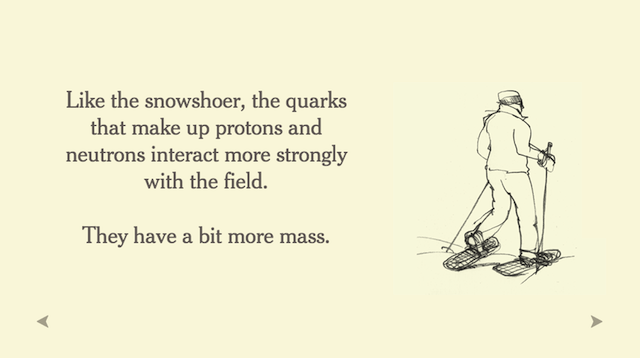This post is part of a series designed to relate the big ideas behind conceiving and producing amazing explainer videos.
You've seen it happen before. You're in a meeting, watching a video or having a conversation and everything is going well. You're on your way to understanding something new. But something happens. Your confidence wanes. What was clear becomes cloudy and you're not sure what to say.
In this situation, it's easy to feel embarrassed, as if you're not smart enough to keep up. It's a very common feeling. In many cases, however, the fault lies not in you, but in the person doing the explaining. They have unwittingly caused you to lose confidence, and you're starting to tune-out.
This is not a good turn of events. To avoid it in your own explanations, you'll need to recognize and avoid a common pitfall - the intellectual leap.
Think of it like this:
Imagine a well designed explanation as a series of steps. The audience is guided along with understandable examples and points that build on one another. The steps are small and consumable.

An intellectual leap happens when a step is too big. The audience is suddenly confronted with an idea, word or example that is unfamiliar or not understandable. They get stuck.
This is a common problem with explanations and it’s important because it impacts one of the most important elements of successful explanations: the audience’s confidence. When confidence is shaken, explanations fail.
I recently saw an example of this with a beautiful animated explainer that was designed to answer the question “What is the Higgs?” via the New York Times. Physics is difficult to understand and I applaud any effort to make it relatable to the public. But I think it contains a leap that may be troublesome for some viewers.
The animation uses a really strong analogy to explain the Higgs Boson: A field of snow. I recommend experiencing the whole thing.
A couple of examples:
It starts by discussing how people interact with snow. Very understandable - good context. We get it.
Then it connects the snow to the Higgs Boson via an analogy. Great.

Then the animation transitions back on our skier and snowshoer (along with other examples) to relate how the Higgs would interact with them. These two scenes are getting a little more complicated but are still consumable to many I imagine. You can imagine a skier barely touching the Higgs field as he slides by.

But then it makes an intellectual leap:

“The quarks that make up protons and neutrons”
Quarks make up protons? What’s a quark again?
The audience goes from thinking about snow and skiers to language that may feel unfamiliar to many. When confronted with the words above, we must ask: how does this impact confidence? Does this language compromise the rest of the explanation?

The first time I experienced this explainer, I came to this scene and felt that it took a turn. What was so beautifully designed and explained to that point didn’t matter. My confidence was shaken. I couldn’t easily make the intellectual leap and it impacted my ability to feel confident about the rest of the explanation.
My guess: This is the Curse of Knowledge at work. To the authors of this piece, electrons, quarks, protons and neutrons are physics 101. Everyone should know the basics. To them, I imagine, this scene didn't represent an intellectual leap at all. It's perfectly clear. But what about readers of the New York Times Science page? Is it a leap for the average reader? It's hard to know.
Here's the real question in my mind: could this scene have been more relatable to a larger audience without the specifics? Did it require quarks, protons and neutrons to be effective? Or could the point have been made more clearly with more general points about different particles interacting with the boson/snow field?
I only use this as an example because it highlights the idea of intellectual leaps. When you’re explaining an idea, think about the small, consumable steps that will build and sustain confidence. You, like everyone, suffer from the Curse of Knowledge and it may cause you to make incorrect assumptions about your audience. Beware language and examples that may represent a leap too high. What may seem normal and harmless to you could compromise your explanation.
Find more explainer tips.
The animation referenced in this post appeared on the New York Times website and contained drawings by Nigel Holmes; Graphic by Jonathan Corum, Alicia DeSantis, Xaquín G.V. and Josh Williams.